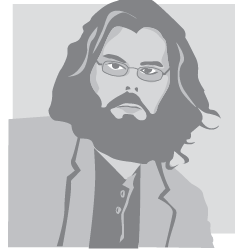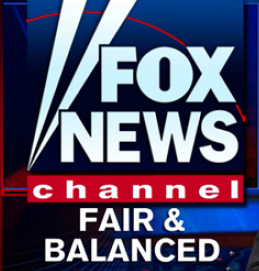aNewDomain — My boss says I’m a journalist.
— My boss says I’m a journalist.
But I’m not sure. I feel a little bit of discomfort with the appellation.
What is journalism? And what am I?
I guess I do see where she’s coming from. Lots of bloggers are actually qualified journalists, left without dead-tree papers and mags to write for as media changed and continues to change, especially over the last 10 years or so. Most of aNewDomain’s staff have years or decades of journalistic experience. They have worked as reporters, editors and columnists. But definitely all bloggers aren’t journalists.
And what is a journal versus what is a blog?

We’ve been chatting the subject around the last couple of days. Here I get to be a columnist — that’s a commentator writing opinion. I’m wholly okay with that, because I’m not a news reporter scaring up verifiable facts to let people know what is going on in the news every day or digging deeply for information and facts as an investigative reporter might.
But let’s come back to that.
I’m credentialed. Not as a columnist, or even as a blogger. But as a therapist and a psychologist. I never went to a communications class, much less a journalism college. Few real journalists do, actually, though I am told that a ton of PR and marketing people have J School degrees. No matter.
The closest thing I have to training is a grounding in existential phenomenology, which is more or less the opposite of objective journalism. An existential phenomenologist values the subjective experience of the patient, client, or interviewee, credits it as the nearest their real, objective truth as we can come.
The journalist, however, must deal in objective facts or come as close to them as is reasonably possible. That’s the nature of such professional journalistic ethics guidelines like these, which my boss told me this site and those run by most journalists strive to follow.
But wait.
There’s a problem with this. In the postmodernist view of truth, multiple truths can exist pluralistically. This values epistemic diversity – multiple ways of knowing, investigating and understanding truth.
And I’m way more qualified than most bloggers or even columnists. Aren’t I?
You don’t need any credentials at all to write blogs. (That said, no publication I can think of requires an official journalism degree for journalists, either.)
I at least have a field of expertise, even though I refuse to stay within its confines. And I have training in bullshit detection, some plan for ascertaining truth or whether truth is possible. Most people with blogs, though, are just people. Average, everyday citizens.
I have to tell you, the average citizen is grossly unqualified for reporting and editing, the activities that generally fall under the heading of journalism.
So what is this journalism thing, anyway?
It has to be more than rendering judgments and opinions, which is basically all I do here. Doesn’t it have to do with presenting all the sides of an issue and ascertaining the facts of the matter? Maybe interviewing people and digging through data? Reporting what actually happened?
Network news is wildly inconsistent in the degree to which they report things of actual newsworthiness. By now it is well-known that stations are beholden to advertisers for revenue. To charge money for advertising time, they need viewers. As a consequence, TV news tends to follow a hackneyed old formula for getting and keeping viewer attention:
- frequent weather checks (exaggerating the drama thereof whenever possible);
- something in your house that might be more dangerous than you thought (news at 11);
- local criminal activity;
- some cutesy bit to make you feel like life isn’t futile (a local person who feeds the homeless);
- something funny (a squirrel who gets into vending machines).
Even when local anchors report facts, the producers who oversee the writers who type into their teleprompters feel obligated to make stupid puns. Can we please stop saying “out of this world” for every space story ever? And stop giving an opinion or at least make a moue of distaste.

And cable news is problematic.
We have Fox, about which nothing can be said that hasn’t already. If you’re still watching it, you know why: Because it echoes your bigoted, narrow-minded Fakesbook feed.
MSNBC’s job is to balance out Fox but it does a horrible job of that.
The best balance for biased reporting isn’t oppositely balanced reporting, but unbiased reporting.
As far as I’m concerned, the people running the news operation at CNN are grossly incompetent ratings hounds, fixated on whatever they can get people to watch: The OJ Simpson slow-speed chase, a missing airliner, and gotcha moments in politics over and over. CNN seems to cover anything but the real, actual, important news of the day, and nothing beyond just the headlines.
Wh0 does that leave? Al Jazeera, whose bias I could never actually nail down but who seem to have at least vaguely anti-American sentiments.
And then there’s the satirical news.
There are Colbert and Stewart, who are retired and retiring.
There’s John Oliver, whose show is too short to cover a fraction of what’s going on out there. His profanity-laden, no-holds-barred assault on untruth has much more to do with a well-researched blog than with journalism. His show is opinions based on heavily-researched facts rather than going around getting opinions and taking pictures.
What else is there? Newspapers? When was the last time a paper broke a major story? The switch away from print to online media, and heavy competition for dollars, has driven some out of business and others out of the business of actual news. It has driven journalists into blogs, but it hasn’t necessarily driven blogs toward real journalism.
And everywhere you look, bias is obvious, pandering more so.

Half the time, it seems the news is just reporting what’s going on in social media. Opinions and questions keep viewers watching.
What’s the point?
Why not get your news directly from what your friends think, if that’s all you really want? Or perhaps you really do want the additional perspective and viewpoint an opinion writer provides, but that’s not real news.
In short, it is incredibly difficult for anyone to sort out what is real news, what is true, and what is falsehood. There are people who specialize in clickbait and misinformation for profit, sowing doubt and inserting their own truth, pandering to readers’ needs to feel self-righteous and justified in their opinions.
Worst of all, even peer-reviewed journals can’t be trusted anymore.
A student asked me today what was the difference between subjectivity and objectivity. Part of my answer was that one of them is frankly impossible. Another part is that objectivity isn’t what it used to be.
We have for-profit, peer-reviewed journals, journals for people rejected by real journals (like Ken Ham’s creation-geology journal, not much more than a blog), and the renting of credentials. This practice involves a respected doctor sellng their name to put on top of an article written by pharmaceutical reps.
Even the journal doesn’t know the article is ghostwritten. The doctor’s name sells the article and it passes peer review.
We have conservative bias in economic journals and liberal bias in social science ones. The student asked, how can someone like her who can barely extract the meaning from a peer-reviewed journal article, how can she determine which are true and which aren’t?
The short answer: We can’t. You can’t, I can’t.
The obfuscation is socially sanctioned and usually done so well we can’t tell the difference even if we want to.
I can’t tell. You can’t tell.
The only answer, really, is to hold your opinions loosely. Really, really loosely.
Look, the purpose of graduate school is to correct all the lies you were told in college, which corrects the lies you were told in high school, which gets somewhat closer to the truth than elementary school.
What do I know that you don’t? Mostly that everything we know is really a matter of opinion, when you get right down to it.

So, like I said, I’m not a journalist. I don’t say I am. But then again, who is? Brian Williams? Jon Stewart? Bill O’Reilly?
I’m OK with being just a blogger, or a columnist, if that’s what the folks paying me here to think and write about the stuff that interests me say I am.
For aNewDomain, I’m no one of consequence.
Image one: DaveFleet.com, All Rights Reserved; image two: ZenPundit.com, All Rights Reserved; cover image/image three: Licensed under Attribution via Wikimedia Commons; image four: David Shankbone (Own work) — CC BY 3.0 — via Wikimedia Commons.












